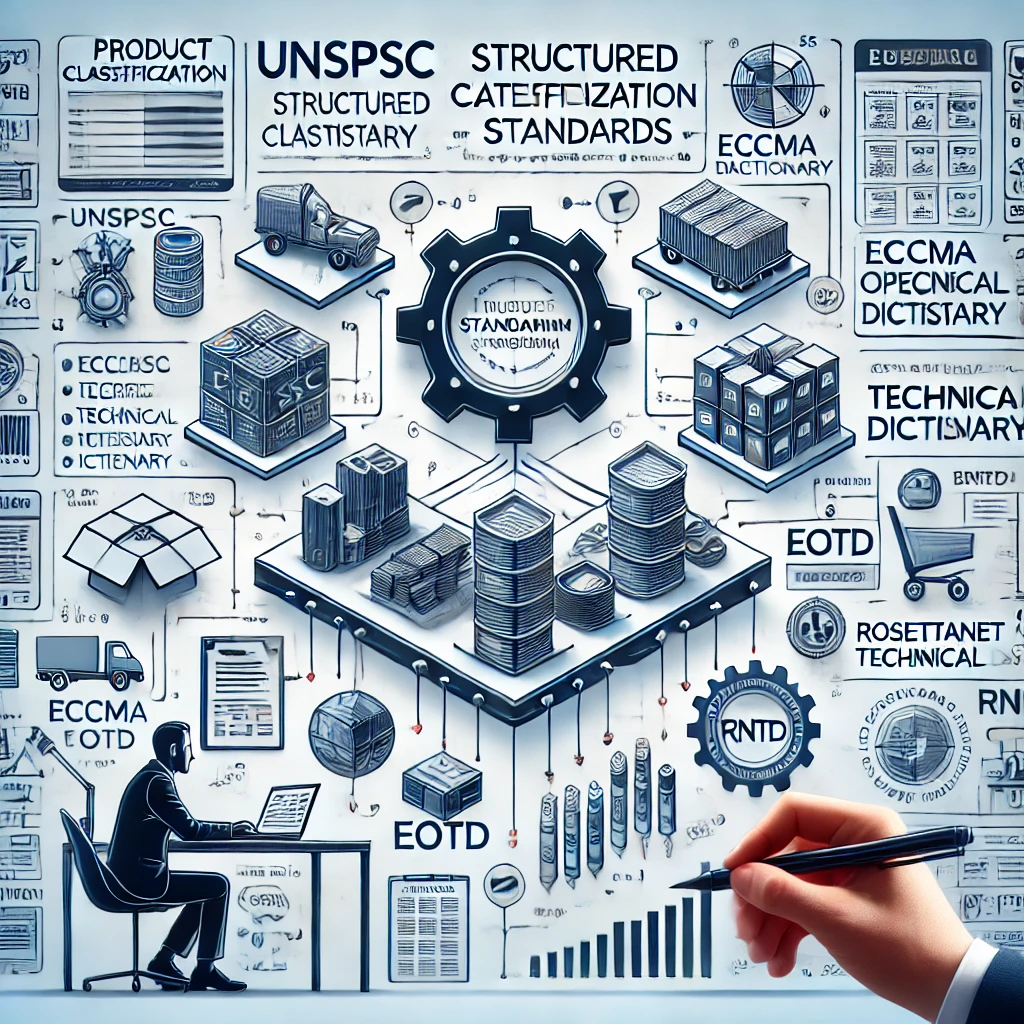In today’s digital world, businesses need a way to organize and share product data easily. Product categorization standards help companies classify goods and services in a clear, structured way. One of the most widely used systems is the United Nations Standard Product and Service Code (UNSPSC). Other key standards include eCl@ss, the ECCMA Open Technical Dictionary (eOTD), and the RosettaNet Technical Dictionary (RNTD). These standards have evolved to improve efficiency and accuracy in procurement and supply chain management.
If you are looking for a UNSPSC search tool you can access it here -> UNSPSC Search
The Development of UNSPSC
UNSPSC was created in 1998 by the United Nations Development Programme (UNDP) and Dun & Bradstreet. Its goal was to provide a universal classification system for products and services. This system helps businesses streamline procurement, improve data accuracy, and enhance communication. Over time, UNSPSC has undergone multiple updates to keep pace with changes in global commerce.
Key Findings from Our Analysis
We analyzed UNSPSC, eCl@ss, eOTD, and RNTD to assess their quality and maturity. The study revealed two major issues:
- Uneven Content Distribution – Some categories contain more information than others, leading to inconsistencies.
- Structural Differences – Some standards offer more detailed classifications in certain areas while lacking depth in others.
Tracking Updates and Improvements
We also examined how often these systems are updated. Some categories receive frequent revisions, while others remain unchanged for long periods. This is important for businesses choosing a classification system, as regular updates ensure relevance and accuracy.
Why Product Classification Standards Matter
Using standards like UNSPSC provides several benefits:
- Greater Efficiency – Automates procurement and reduces manual data entry.
- Improved Accuracy – Ensures products and services are categorized correctly.
- Better Communication – Helps businesses share data across different platforms.
- Informed Decisions – Provides reliable information for better purchasing and inventory control.
How Businesses and Standards Bodies Can Benefit
- For Businesses – Companies can use these insights to choose the most suitable classification system for their needs.
- For Standards Organizations – Monitoring and updating classifications ensures continued relevance and reliability.
By adopting structured classification systems like UNSPSC, businesses can improve efficiency, reduce errors, and enhance supply chain transparency.

